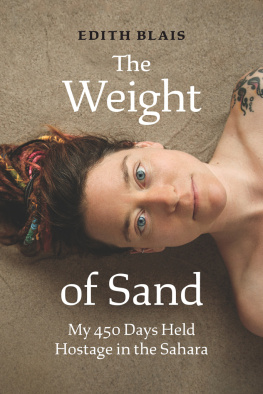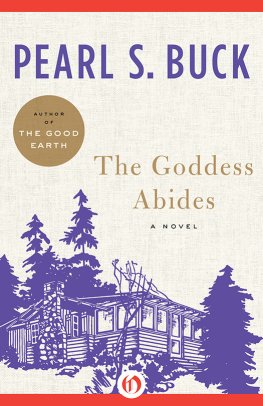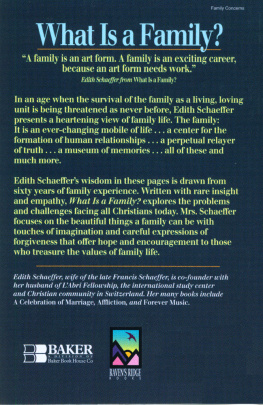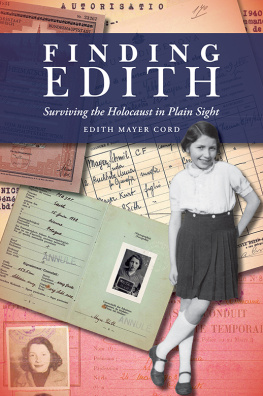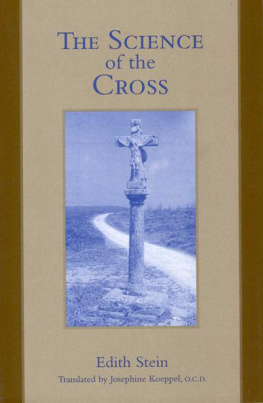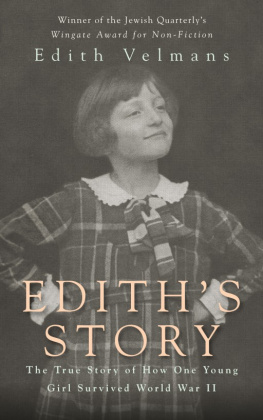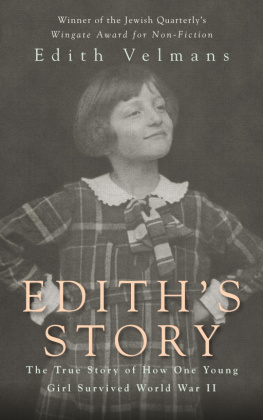EDITH BLAIS
Translated by KATIA GRUBISIC

First published in English by Greystone Books in 2021
Originally published in French as Le Sablier, copyright 2021 by ditions de lHomme, a division of Groupe Sogides, Inc., Montreal, Quebec, Canada English translation copyright 2021 by Katia Grubisic Illustrations copyright 2021 by Edith Blais
21 22 23 24 25 5 4 3 2 1
All rights reserved. No part of this book may be reproduced, stored in a retrieval system or transmitted, in any form or by any means, without the prior written consent of the publisher or a license from The Canadian Copyright Licensing Agency (Access Copyright). For a copyright license, visit accesscopyright.ca or call toll free to 1-800-893-5777.
Greystone Books Ltd.
greystonebooks.com
Cataloguing data available from Library and Archives Canada
ISBN 978-1-77164-909-4 (cloth)
ISBN 978-1-77164-910-0 (epub)
Original editing by Ann Chteauvert
Editing for English edition by Paula Ayer
Poetry editing for English edition by Broc Rossell
Proofreading by Jennifer Stewart
Jacket and text design by Jessica Sullivan
Jacket photograph by Krystel V. Morin
Photograph on courtesy of the family of Edith Blais
Greystone Books gratefully acknowledges the Musqueam, Squamish, and Tsleil-Waututh peoples on whose land our office is located.
Greystone Books thanks the Canada Council for the Arts, the British Columbia Arts Council, the Province of British Columbia through the Book Publishing Tax Credit, and the Government of Canada for supporting our publishing activities.

To my Lady Light, Sophie Ptronin, and to my heavenly star, Sister Gloria Cecilia Narvaez. Your shining strength and courage rekindled my spirit. Thank you for having sown the seed which, thanks to your endless encouragements beneath that white tent, blossomed into The Weight of Sand. May my love accompany you and yours. I will hold you forever in my heart and in my thoughts.
Contents
by David Morin and Franois Audet
JULY 24, 2019
219th day in captivity
I Am Myself
I walked, walked to find my path
Through the woods and in the looming mist.
Beneath the mystery above the stars,
Through concrete cities endless drift.
I walked, walked and never looked back.
I burned my feet on the desert sand,
Swayed my body in the oceans swell and slack.
I walked, walked to find my land...
I looked for myself everywhere,
Went after the wind as it wove in the streets
And through the dunes deep nowhere
To the far horizons I would meet.
From the wise world, riddles fell
And set me on a path with new meaning.
Wherever I looked, I found myself:
I am here, I am there, I am me in the wind.
Part I EuropeTogo
[ ] Crossroads
WHEN I WAS twenty-nine years old, I went on a trip.
Im going away for the summer, I told my family and friends. Im going to pick cherries in the Okanagan. Ill be back in Quebec in the fall.
They looked at me wryly; they doubted Id really be back by fall. I couldnt blame them. I had said the same thing to them when I was eighteen and only returned a year and a half later. I tried to reassure them: Id already bought a non-refundable return ticket for September.
So I set off for the summer. I met amazing people. But my friends and my family obviously knew me better than I thought, since I didnt come home by fall. Once Id had a taste of adventure, I was hooked: the freedom spoke to my soul. Traveling was intoxicating, and I didnt want it to stopI wasnt full yet. I wanted to discover what was happening elsewhere in the world, in other cultures. Who would I be blessed enough to meet? What unique landscapes might I behold? On what soil might I tread? How would traveling change the way I thought about life, about the world?
I was freethe wind in my hair, my tent in my pack, my thumb stuck out. I was about to venture out on the mythical Route 101 along the Pacific coast of the United States toward California.
In the fall of 2014, I met a man in Northern California through a mutual friend. He was from Togo, where hed been working on a permaculture project, based on the principles of agroforestry. He wanted to develop a self-sufficient farm, producing food and renewable energy, and he dreamed of founding a local ecological center that would promote the exchange of knowledge between travelers and villagers in the Kpalim region. He also hoped to reforest a seventy-acre plot with native fruit trees. The project should be underway within a few years, he thought. When the time came, he would even take in travelers who wanted to give him a hand. Hed mentioned the idea to the perfect person: I could already imagine myself working on his promised, promising land. I wanted to discover African culture, to which Id been drawn since I was young, and I wanted to help my friend fulfill his dream of a place where it was possible to live simply and in tune with nature.
I had always believed that a simpler existence would make me see life in a different light, and I wanted to take a break from a culture that seemed materialistic to me. I wanted to share with others, to get closer to the earth, to eat with my hands, to walk barefoot, to feed on the elements. To live without chairs, without a table, a sofa, without a TV and a bed, no roof, no door, no shower. Though I expected I would miss showers.
Sure, my vision was a touch romantic, but thats just the way I am: Ive always been carried along by dreams, and nourished by reality. I also wanted to spend time with my Togolese friendI thought the world of himand to help make his dream come true. I had even just finished a horticulture course that spring. I didnt have much experience, but I wanted to learn, and to keep learning. Id been craving a connection to the earth, to life, to the planet and its secrets, its mysteries and its beauty. I wanted to stir up the endurance and the resourcefulness that I knew lay dormant within me. I wanted to breathe, to take in life far away from pollution, from comfort, and from people who are always in a rush.
With a light heart, I left the friends with whom I had traveled to California, and went on alone. Mexico, Guatemala, El Salvador, Honduras, Nicaragua, Costa Rica, Panama... I had lots of adventures, and I met unforgettable people. I danced with incredible folk musicians. I practiced acro-yoga on the beach in Mexico where a bunch of us had gathered at sunset. I went down to Guatemala with two Spaniards, a Swiss guy, and a Japanese. We thought of ourselves as a bohemian caravan.
I saw awe-inspiring nature, the world revealed sumptuously before my amazed eyes. I slept on beaches, under the glimmer of the stars, and woke up in the morning with dew clinging to my sleeping bag, my face uncovered. I loved it! There is nothing more soothing than falling asleep to the sound of waves as they settle gently on the sand. I also slept in slightly more unusual placesorchards, volcanoes, under trucks, on boats, under bridges...
One night, Id planned to sleep on the beach in Santa Barbara. Id spotted a police cruiser, and hid under a boat. But the cop car turned in my direction and the headlights caught me. The police kindly explained that I had to go to sleep with the homeless people, on the main street, under a streetlight. I would be safer there; and, above all, the law was the law. I couldnt believe it. What could be safer than my hiding place under the boat? But the police said they would kick me off the beach again if I came back to sleep here: it was illegal. So I hauled my backpack along and curled up on the cold concrete, trying to hide in my sleeping bag so that no one would notice I was a young woman alone. I understood then why people who live on the street sleep on cardboard boxes: the cold concrete is freezing, and the cardboard provides some insulation. I didnt sleep a wink that night. I was worried, listening in on the conversations my new roommates were having with their ghosts. I would have preferred the lapping of the waves, but things dont always work out the way you want.

